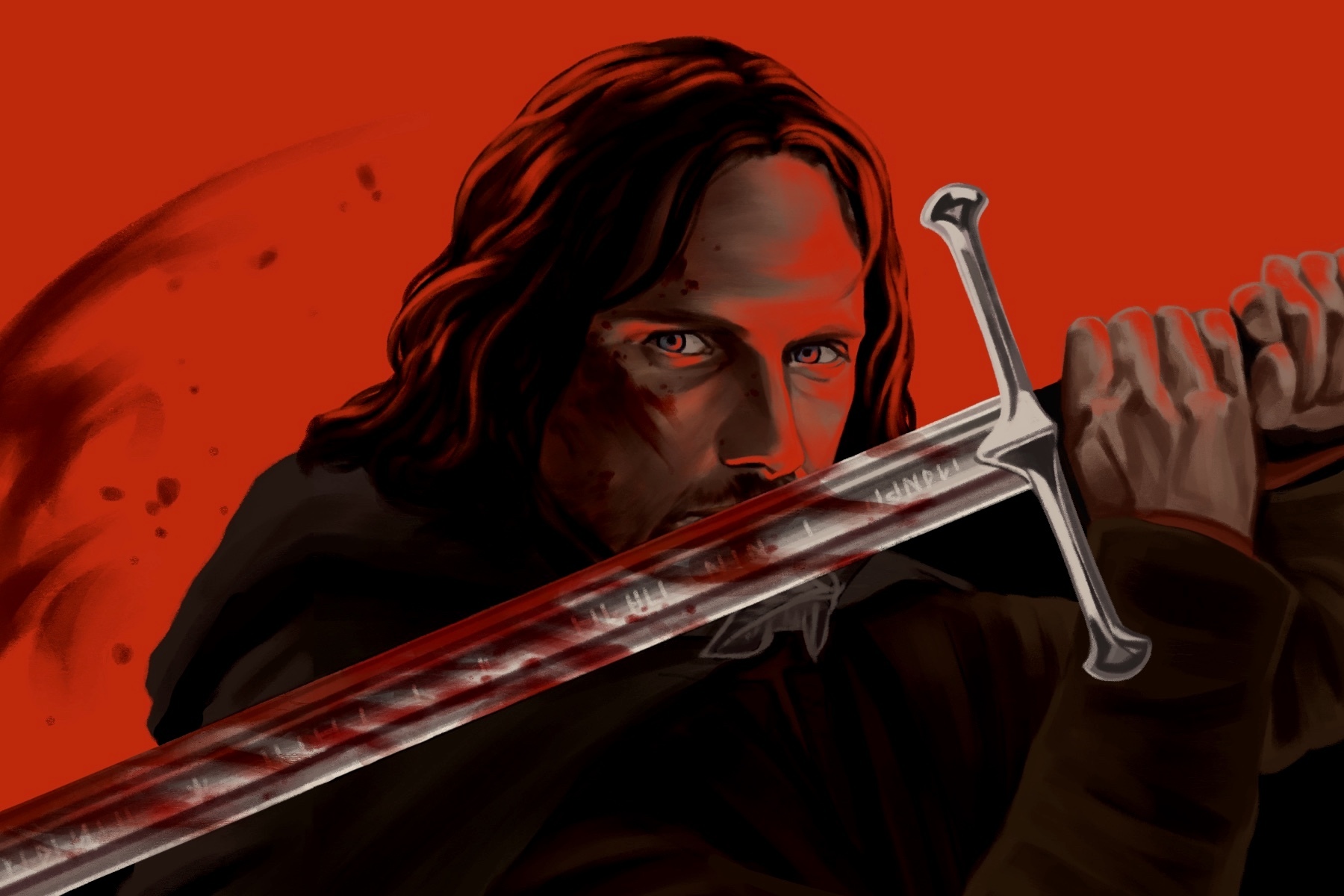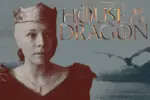Dragons, magic, heroes and the inhuman armies at war with them. One of literature’s most popular genres, the fantasy epic merits widespread audiences for the way its premise appeals to readers’ imaginations by incorporating otherworldly ideas into deceptively character-driven stories. By bringing readers along for some variation of the iconic hero’s journey, they too enjoy the highs and lows of a quest. The same can be said for modern adaptations of these stories, as advancements in special effects have brought cinema and even television audiences into fantastical worlds.
Never was this more evident than with the film adaptations of J.R.R. Tolkien’s iconic 1954 novel “The Lord of the Rings.” Audiences frenzied over casting news before the release of the first film in the trilogy back in 2001 and supported the series with each subsequent installment. By the time the final film, “The Return of the King,” left theaters in 2004, the trilogy had accumulated nearly $3 billion at the global box office. The adaptation was a worldwide phenomenon, expanding interest in the genre for many and proving to producers how lucrative fantasy can be. A gold rush ensued, peaking again with the premiere of HBO’s “Game of Thrones” exactly a decade after the release of the Tolkien trilogy’s first film. Today, this public interest is being served with soon-to-come prequel series to both epics.
However, Prime Video appears to be explicitly chasing the success of “Game of Thrones,” which enjoyed eight critically acclaimed seasons and amassed a new peak in viewership with its finale. In 2020, production for the untitled “The Lord of the Rings” prequel called for an established intimacy coordinator on their staff and actors comfortable with nudity. This is a strong step away from the actual content of Tolkien’s work, which kept sultry elements hidden away from its heroes. Tolkien was devoutly Catholic and aimed to present Middle Earth as “high” and “purged of the gross” while espousing the powers of will and companionship. So, while adult content may make sense for a primarily adult viewer base, it doesn’t agree with the original premise of “The Lord of the Rings.” By shifting away from the world that fans fell in love with decades ago, Prime Video risks the possibility of pleasing neither side. Even more importantly, it neglects the lore and histories of both stories and the authors behind them.
Larger dilemmas surrounding honoring artistic integrity and legacy are brought into question by the upcoming prequel. For example, would the Catholic Tolkien appreciate the adult content? Or disavow the work entirely? One cannot surely say, but audiences can speculate. Either way, imitation seems unnecessary when considering all that “The Lord of the Rings” offers readers and how unmistakable it is when pitted against other works within the genre.
Contrary to Tolkien, author George R.R. Martin believed the grosser aspects of characters and the world at large to be crucial to “A Song of Ice and Fire,” the source work for HBO’s “Game of Thrones.” With over 13 million viewers, HBO’s adaptation of the property exposed many to a new story, yet also expanded expectations for the genre. Despite his story being inspired by Tolkien and himself an avid fan of “The Lord of the Rings,” Martin’s fantasy stories are distinctively grittier and refreshingly logical. Early plot points draw from European monarchies and the real-life Wars of the Roses, placing political intrigue and strategy as central to his tale. Plot armor, righteous morals and heroics prove secondary to historical inspiration and characters’ ambitions, ethical or otherwise.
By incorporating sex, betrayal and crimes as important plot aspects equaling moments of altruism and the spectacle central to a successful fantasy, Martin reimagined the basis for the fantasy novel. His characters use whatever they have at their disposal — their bodies, their status or the trust of another — as means to often cynical ends, a feature that makes the genre’s moments of magic and heroics all the more exciting in comparison.
All too often in fantasy, humans are merely heroes. This allows audiences to easily root for and understand the protagonists but this isn’t true to the people we know. Outside of stories, humans are incredibly complex. Contrary to what a genre centered on humans fighting wars against dark, mythical creatures would suggest, both good and evil exist simultaneously within everyone. Martin recognized this duality and the need for greater characterization within the genre he hoped to grow, and he made that essential to the premise of “A Song of Ice and Fire.”
In 2018, he stated that “Wherever you want to set your story, it’s still about people trying to make their decisions about what is right and what is wrong, how do I survive, questions of good and evil.” It is no surprise then that “A Song of Ice and Fire” and “Game of Thrones” offer us complicated, even conflicted, characters and intricately woven plots as their primary appeals. Instead of blindly imaginative, Martin’s version of fantasy purposefully juxtaposes the dark against the light to maximize tension and intrigue readers.
So, for all that “The Lord of the Rings” offers in lore and grandiose scale, it diverges from Martin’s intentions. Still, it’s worth mentioning that the previously espoused success of “A Song of Ice and Fire” is still owed to Tolkien as a foundational source of inspiration. “The Lord of the Rings” is revered as a literary classic within the fantasy genre, and is ranked as the 59th entry in Reedsy’s 2019 list of the top 100 best fantasy series accordingly. The novel helped incorporate elves, orcs and hobbits into the mainstream of Western fiction.
However, “A Song of Ice and Fire” is the natural progression of the genre with the times. Martin’s series tops Reedsy’s list for that very reason, as it presents a mature version of what came previously. Just as entertainment has grown increasingly more graphic and programming more lenient with their ratings and restrictions, “A Song of Ice and Fire” treated its material and audiences as mature, regardless of the mystical figures littered throughout its pages. That is, in part, why it translated seamlessly to television and captivated a wide array of adult audiences.
In 2014, Martin famously questioned: “What was Aragorn’s tax policy? Did he maintain a standing army? What did he do in times of flood and famine? And what about all these orcs?” However misplaced, these peculiar concerns subtly fueled the transformation of the genre. Martin’s unanswered questions negate the otherwise happily-ever-after-ending offered by Tolkien and so many before him. Martin’s approach blurred the lines between the world we experience and the ones we flee to between pages or by watching screens. However, incorporating these elements now into Prime Video’s “Lord of the Rings” spinoffs may prove a stretch, or a miss entirely, for fans of Tolkien.
There still remains a critical place for “The Lord of the Rings” today. Tolkien’s work is a testament to the themes he hoped to convey, about goodwill, friendship and triumph over evil, and is perfectly suited to present these ideas, even in modern television adaptations. Tolkien’s series appeals to nearly all age groups and translates lucratively into on-screen adaptations. Frodo, Gandalf and the fellowship are best enjoyed through their accessibility. Because of this, countless readers still gravitate toward Middle Earth, and would happily peer into its immense world without the cheap sex appeal and “Game of Thrones” chasing rumored of Prime Video’s upcoming prequel. By incorrectly treating Tolkien’s work like that of Martin’s, producers neglect intention and accomplish little for either story.
Regardless, there remains some potential that the series will interest fans of “Game of Thrones” and garner success for its quality as a show. However, the possibility of ostracizing the source material’s core fans is alarming. How showrunners will ultimately incorporate these mature elements into a fantasy story that deliberately omitted them is yet to be seen, as well, but concern for the prequel series appears appropriate. By imitating another popular work and hoping that the amalgamation of the two borrows only the good from both, Prime Video may have ironically shown the naive optimism prevalent within the genre it’s operating within. Time will tell.
















